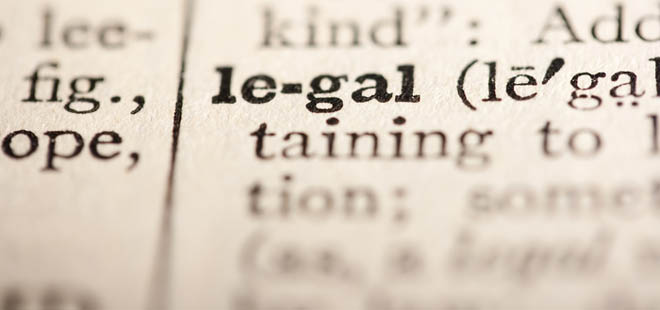Can You Be Held Liable for a Website You Host?
Web hosting seems like a straightforward business. You provide a server for customers to create websites on, and that’s that. Hosting is not always so simple, however. A little bit of content that violates copyright, is involved in cyber bullying, or incites violence and terror attacks can cause a huge stir, and the action you take could affect whether or not you are liable for that content. You didn’t post the content on the internet yourself, so how can you be found at fault for it?
What Exactly Is Liability?
You have likely heard of liability before. If you are liable for something, you are responsible for it. In the case of website hosting, usually the creator of the website is responsible for the content found on the site. While the web host provides a space for the customer to create their website, the host usually does not control what is put on a particular website beyond what is spelled out in the terms and conditions of use. Is there a way that a web host can be held responsible for the content on a customer’s site?
Times Are Changing
In the past, many web hosts probably weren’t worried about being held liable for their customers’ content. After all, as long as they took proper steps to protect themselves, it seemed to ultimately be the customers’ problem. Times are changing, however, and now there are instances where web hosts have been found liable—and guilty in court—of content on a customer’s website. Earlier this year a Russian web hosting company had an appeal rejected after they were found guilty for hosting pirated content that was on a customer’s website. Now that such a precedent has been established, more cases like this are likely to pop up on the radar all over the world.
RELATED: The Release of the February 2011 Email Security Report
DMCA** **
In the United States, the Digital Millennium Copyright Act serves as a special buffer for internet service providers and web hosts. To put it simply, the DMCA criminalizes the production or digital distribution of copyrighted items such as pictures, music, books, and so forth. An internet provider or web host may not be found liable for content on a website if they meet certain requirements, which includes blocking access to certain material until the issue is resolved.
The Numbers Problem** **
How are you supposed to know exactly what content is on every single website your customers create? It seems like an impossibility. You likely don’t have the time or resources to peruse every page and file associated with every account you host. Instead, you have to rely on the reports of visitors to those websites.
Steps You Can Take** **
Although the DMCA generally protects web hosts in the United States, the same is not necessarily true for other countries around the world. In order to better protect your hosting company from the threat of litigation and to meet the requirements of the DMCA, there are certain steps you need to take. If you can prove that you did everything within your power to resolve the issue with a particular customer’s website or content, you may have a better chance at not being found liable for certain content.
RELATED: Be Careful Of Selecting Your Storage: Where the Vendors “Hush”
Terms and Conditions
It all starts with creating the customer’s account. You need to spell out clearly in your terms and conditions what is and is not acceptable content for a website you host. Where appropriate, clearly state that you relieve yourself of liability for the content posted on a site. In addition to a list of what is not appropriate content, clearly state what will happen if such content is found on a customer’s site. The better you communicate what is and is not appropriate and the steps you will be taking, the better.
Finding Inappropriate Content** **
If you happen to come across content that is in violation of your terms and conditions, or if you receive a complaint from a visitor or customer about the content of a website, you need to take action immediately. Usually this involves first contacting the website creator.
- Contact the website creator clearly stating the complaint or the content that is in violation of the terms and conditions. Where necessary, block the content for the time being.
- Give the creator 48 hours to respond.
- If the creator responds and disputes the claim, you may need to message the complainant about the dispute. Court documents from the complainant may then be necessary for further action.
- If you decide the content to be in violation and remove it, let the creator know what action you took and why.
Each of these steps may be a little more involved than what is described here. Any time that you communicate with a website creator or complainant, you need to be clear and concise about the events going on. In some cases, a complainant may ask for a website creator’s information. Privacy laws dictate that you can only release this information if the website creator gives permission or if there is a court order.
RELATED: Big Data #8: Big Data for the Small and Medium-sized Businesses
Why These Steps Are Important
The steps listed above are vital if you want the protection that the DMCA provides. What about lawsuits brought to you from parties outside of the US? For the most part, cases like the one in Russia are not yet common. As a web host, you stand a better chance of not being found liable if you can prove that you took appropriate action as soon as the infringed content was made known to you. If you do nothing when you are notified about content that infringes copyright, incites cyber bullying, violence, or terror attacks, you may have more difficulty staying out of legal trouble.
Know Your Liabilities
If you know your liabilities, you can better protect yourself. As a web host, you certainly can be held liable for content on a website you host, especially if you know about the content and take no action. Start with your terms and conditions to clearly state what is and is not appropriate content for the websites you host. When you are notified about content that involves copyright infringement, cyber bullying, or inciting violence or terror attacks, take the steps necessary to remove the content or contact the parties involved. The actions you take could ultimately determine whether or not you are truly legally liable for a website you host.
Top image ©GL Stock Images




